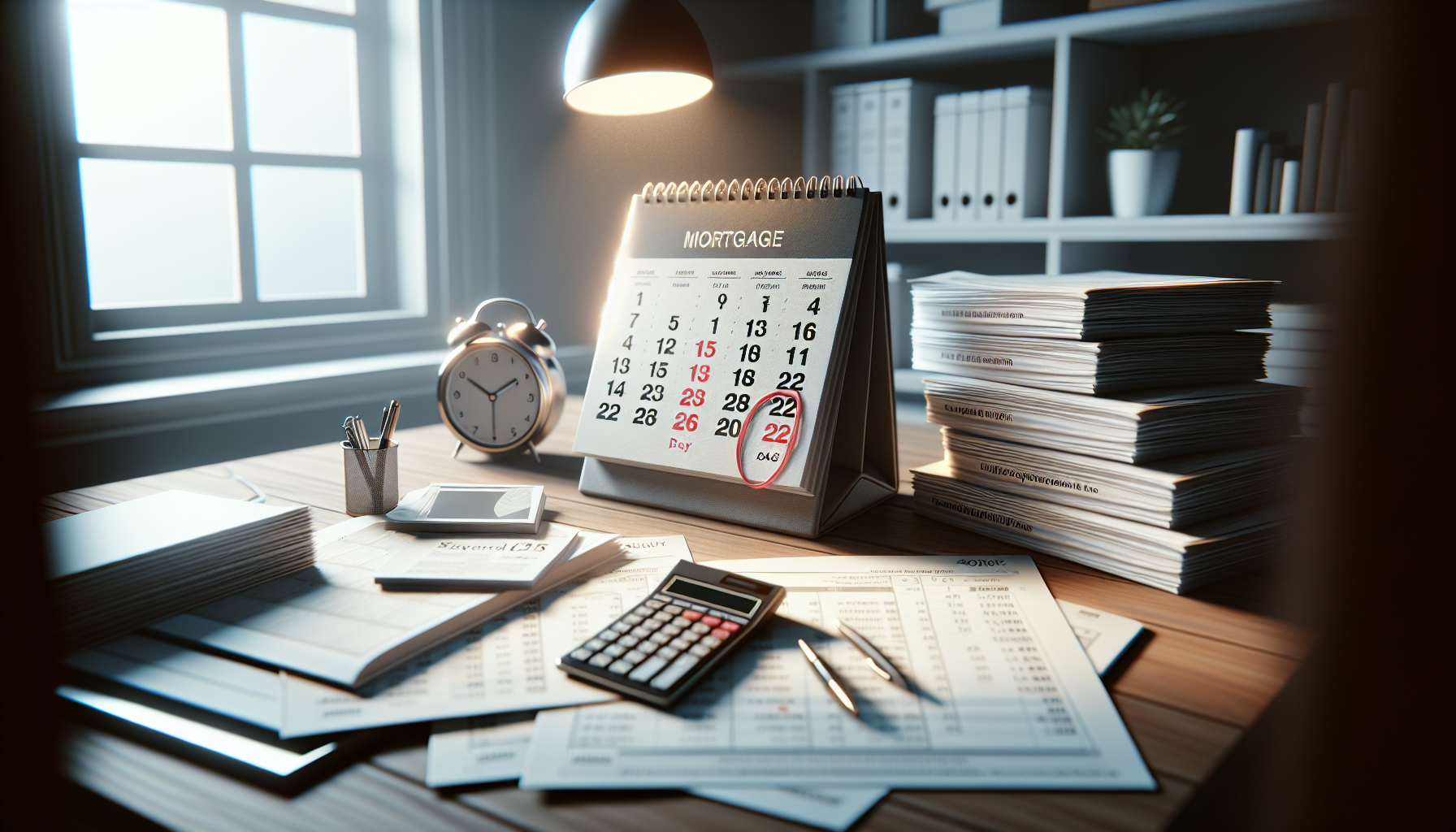
When Is My First Mortgage Payment Due?
Buying a home is an exciting milestone, but it also comes with new responsibilities, including making your first mortgage payment. As a new homeowner, it’s essential to understand when your first mortgage payment is due and what it entails. Knowing this information will help you plan your finances accordingly and avoid any potential late fees or credit score damage.
Understanding Your First Mortgage Payment Due Date
When to Expect Your First Mortgage Payment
Your first mortgage payment is typically due one full month after your closing date. For example, if you close on your home on March 15th, your first payment would be due on May 1st. This is because mortgage payments are paid in arrears, meaning you’re paying for the previous month’s interest and principal.
The exact due date of your first payment will be outlined in your mortgage documents, specifically in the “First Payment Letter” that you receive at closing. This letter will provide all the necessary details about your mortgage payment, including the amount due and the due date.
Factors Affecting Your First Mortgage Payment Due Date
Several factors can impact the timing of your first mortgage payment, including your closing date and any prepaid interest. If you close on your home earlier in the month, you’ll likely have to pay more in prepaid interest at closing, which covers the interest from the closing date until the end of the month. This prepaid interest is typically rolled into your closing costs.
On the other hand, if you close later in the month, you’ll pay less in prepaid interest at closing, but your first mortgage payment may be due sooner. It’s important to discuss these details with your lender and plan accordingly to ensure you have the funds available when your first payment is due.
Components of Your Mortgage Payment
Understanding Principal and Interest
Your mortgage payment is made up of several components, with the two main parts being principal and interest. Principal refers to the amount you borrowed from your lender to purchase your home, while interest is the cost of borrowing that money. Each month, a portion of your payment goes towards paying down your principal balance, and the rest goes towards interest.
The breakdown of your principal and interest payments is outlined in your mortgage’s amortization schedule. This schedule shows how much of each payment is allocated to principal and interest over the life of your loan. In the early years of your mortgage, a larger portion of your payment will go towards interest, but as you pay down your principal balance, more of your payment will go towards principal.
Escrow Accounts for Taxes and Insurance
In addition to principal and interest, your mortgage payment may also include funds for your escrow account. An escrow account is a separate account set up by your lender to collect money for property taxes, homeowners insurance, and other related expenses. By including these costs in your monthly mortgage payment, your lender ensures that these bills are paid on time, protecting their investment in your home.
| Mortgage Payment Component | Description |
|---|---|
| Principal | The amount you borrowed to purchase your home |
| Interest | The cost of borrowing money from your lender |
| Escrow (Taxes and Insurance) | Funds collected to pay property taxes and homeowners insurance |
Making Your First Mortgage Payment
Payment Methods for Your Mortgage
Most lenders offer several convenient options for making your mortgage payments, including:
- Auto Pay: Set up automatic payments from your bank account to ensure your mortgage is paid on time each month.
- Online Payment: Many lenders offer online payment portals where you can securely make your mortgage payment.
- Mail Payment: You can mail a check to your lender’s payment address, which is usually provided in your monthly statement.
- Phone Payment: Some lenders allow you to make payments over the phone using a debit card or electronic check.
Choose the payment method that works best for you and your financial situation. Setting up automatic payments can help ensure you never miss a payment and avoid potential late fees.
Tips for Making Timely Mortgage Payments
To ensure you make your mortgage payments on time, consider the following tips:
- Set up automatic payments to avoid forgetting to make a payment.
- If making manual payments, set reminders a few days before your payment is due.
- Budget accordingly to ensure you have the funds available when your payment is due.
- If you can’t make a payment on time, contact your lender immediately to discuss your options.
Remember, most lenders offer a grace period of around 15 days after your payment due date. However, it’s best to make your payments on time to avoid potential late fees and negative impacts on your credit score.
Dealing with Missed Mortgage Payments
Understanding Mortgage Payment Grace Periods
If you miss your mortgage payment due date, don’t panic. Most lenders offer a grace period of around 15 days, during which you can make your payment without incurring a late fee. However, it’s important to note that this grace period is not an extension of your due date, and your payment is still considered late if not received by the due date.
If you consistently make payments during the grace period, it can negatively impact your credit score. Late payments are typically reported to credit bureaus if they are more than 30 days past due, so it’s crucial to make your payments on time whenever possible.
Options for Mortgage Payment Assistance
If you’re struggling to make your mortgage payments, contact your lender immediately to discuss your options. Many lenders offer assistance programs to help homeowners facing financial difficulties, including:
- Loan Modification: A loan modification can help make your mortgage payments more affordable by extending your loan term, reducing your interest rate, or changing your loan type.
- Repayment Plan: If you’ve missed payments, a repayment plan can help you catch up by spreading the missed payments over a set period, in addition to your regular mortgage payments.
- Temporary reduction of payments: In some cases, your lender may agree to temporarily reduce or suspend your mortgage payments for a set period to help you get back on track.
The key is to communicate with your lender as soon as you anticipate having trouble making your payments. The earlier you reach out, the more options you may have available to help you avoid foreclosure and protect your credit score.
See also:
- When Is My First Mortgage Payment Due if I Close June 1st?
- When Is First Mortgage Payment Due?
- When Is Your First Mortgage Payment Due?
- What Is a Mortgage Statement: Understanding and Reading Your Monthly Statement
- Understanding the Components of a Monthly Mortgage Payment
